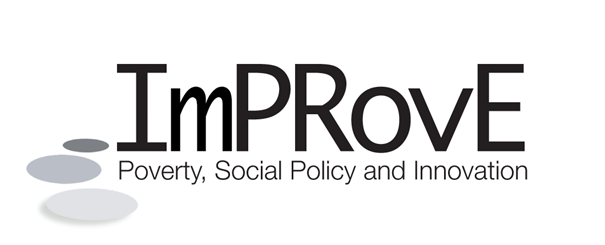This WP aims to assess local socially innovative policies and practices that address new and growing inequalities. In order to assess the extent to which socially innovative policies and actions help those (social groups of) European citizens that are identified as poor and socially excluded, special attention will be paid to the governance dimensions of successful socially innovative policies and actions.
More specifically we will address the governance challenges that are rooted in the complex interrelationships between the typical actors (community organisations, local states, NGOs and social movements, social economy firms, etc.), instruments and goals of local forms of social innovation and the redistributive policies of the national welfare state.
This WP will draw on three bodies of literature, namely the social innovation literature (Klein and Harrison, 2007; Moulaert, Martinelli and Swyngedouw, 2005), the emerging literature on rescaling social policy (Kazepov, 2010; Brenner, 2004; Cantillon, Popelier and Mussche, 2010) and macro- institutionalist literature on policy mix and instruments (Thelen, 2004; Beland, 2007).
We will identify and assess local socially innovative policies and actions, focussing on policies and actions that have experimented (successfully or not) with policy mixes that include socially innovative instruments (social learning, awareness raising and collective action/mobilisation) and with multi-level governance, i.e. learning, mobilising diverse actors and resources and raising awareness of local social needs across various spatial scales. The case studies will be sourced in close cooperation with the extensive stakeholder group of SOCIAL POLIS, Eurocities, EUKN and URBACT. They will be assessed using a comparative and transdisciplinary method.
The call for promising socially innovative initiatives is now online (see here)!
| Title | ||
|---|---|---|
|
Case Study 19: the furniture re-use network |
1 MB | Download |
|
Case Study 18: Experimenting with Housing First in Ghent: the occupation of the Emmaüs monastery |
1 MB | Download |
|
Case Study 17: Study halls (tanoda) for Roma and vulnerable children in Hungary |
575 KB | Download |
|
Case Study 16: Roma engagement strategies in Manchester: the MigRom project |
913 KB | Download |
|
Case Study 15: Charity shops as employment alternatives in Hungary |
587 KB | Download |
|
Case Study 14: Camden Housing First |
751 KB | Download |
|
Case Study 13: Energy poverty and social entrepreneurship: strengthening pre-financing models for energy efficient electrical appliances through the ‘Energy for All’ programme |
907 KB | Download |
|
Case Study 12: Thara – Improving labor market access for Roma |
610 KB | Download |
|
Case Study 11: Hippy – Home Instruction for Parents of Preschool Youngsters |
591 KB | Download |
|
Case Study 10: ERfA – Experience for All: Sewing Workshop |
739 KB | Download |
|
Case Study 09: Domo vzw Leuven: Family support by volunteers |
908 KB | Download |
|
Case Study 08: De Kringwinkel: A symbiosis between jobs for the long term unemployed and waste reduction? |
2 MB | Download |
|
Case Study 07: Ten for Cooking: Learning trajectories to work in the catering sector for people on minimum subsistence income in Leuven, Belgium |
792 KB | Download |
|
Case Study 06: Housing First in Hungary |
703 KB | Download |
|
Case Study 05: Housing First Vienna |
616 KB | Download |
|
Case Study 04: SEI – Sportello contro l’Eccessivo Indebitamento (Over-indebtedness Help Desk) |
565 KB | Download |
|
Case Study 03: Cohousing: Io Cambio Status (Cohousing: I change status) |
1 MB | Download |
|
Case Study 02: A project to support Roma children in education and social inclusion pathways in Lecce-Italy |
706 KB | Download |
|
Case Study 01: Vielfalter – Diversity as Chance |
653 KB | Download |

